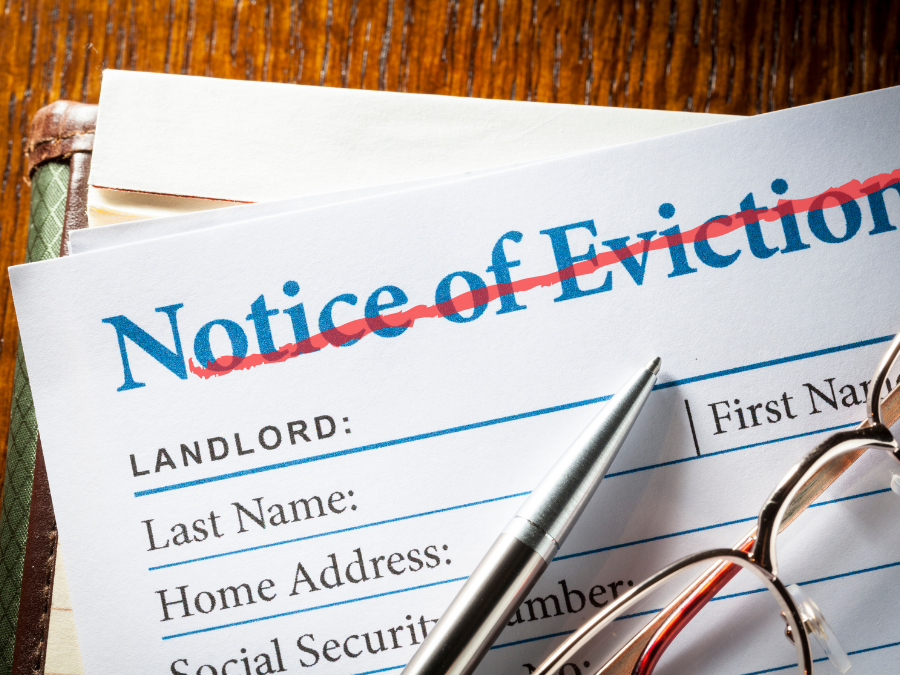City of Glendale’s Temporary Eviction Moratorium Revised to Align with State Repayment Schedule – Te

The City of Glendale has adopted a revised Emergency Eviction Moratorium Order (the “Revised Order”) that aligns the repayment schedule for past due rent with State law under Assembly Bill No. 3088. Under the Revised Order, Glendale’s residential eviction moratorium was modified to have expired on August 31, 2020, and its rent increase freeze expired on October 31, 2020. In addition, Glendale’s repayment schedule for unpaid rent was modified to track with Assembly Bill 3088 as follows:
Unpaid rent between March 1, 2020 and August 31, 2020:
Landlord’s must provide a notice to “pay or quit” and notification which explains your rights and obligations. Tenants then cannot be evicted if they return a declaration of COVID-19 related financial distress, signed under penalty of perjury, and returned within 15 business days of receiving a notice to “pay or quit.” Landlords must provide this declaration to their tenants to complete and sign, and it must be in the language of the rental agreement.
If a tenant’s household income is more than 130% of the median household income for Los Angeles county and more than $100,000, landlords may demand proof of COVID-19 related hardship be provided to support the tenant’s declaration.
If tenants are unable to provide the declaration to your landlord within 15 business days, they may still submit the declaration to the court for similar protections if you have a “good reason” for not providing it within 15-days to their landlord. “Good reasons” include mistakes, inadvertence, surprise, or excusable neglect as interpreted in the California Code of Civil Procedure.
Unpaid rent between September 1, 2020 and January 31, 2021:
All the same rights and obligations set forth above for March 1, 2020 to August 31, 2020 apply. In addition, by January 31, 2021, tenants must pay at least 25% of the rent due during the period of September 1, 2020 through January 31, 2021. Tenants may do this by paying at least 25% each month, or by paying a lump sum equaling 25% of rent owed , during this period of time, or by some other means but by no later than January 31, 2021.
Miscellaneous:
Despite these eviction protections, all back rent is still owed. Beginning March 1, 2021, landlords can take tenants to small claims court or civil court to recover unpaid rent debt regardless of how much the tenant owes. By no later than February 1, 2021, tenants will have to pay the full amount of your rent to be protected from eviction.
Until February 1, 2021, a landlord can only evict a tenant if they provide a legally valid reason. The stated reason must match one of the valid reasons allowed by the law, a “just cause” eviction.
Landlords who do such things as lock tenants out, remove personal property or shut off utility services to evict a tenant, rather than going through the required court process, could face fines of between $1,000 and $2,500. These penalties are in effect until February 1, 2021.
Termination of Rent Increase Freeze:
The City of Glendale’s temporary rent increase freeze order is set to expire on October 31, 2020. The City’s order prohibits residential rent increases for many rental properties in Glendale, excluding single family homes, individual units in condominium buildings, and units constructed after February 1, 1995. Any notices issued during the rent freeze or notices issued before the rent freeze that were to go in effect during the rent freeze period are invalid. A new rent increase will not be effective until the rent freeze expires and a new notice of rent increase is issued in accordance with state law.
AAGLA believes that any revision or repeal of the City’s residential eviction moratorium provisions including the deferred rent repayment plan past August 19, 2020 is void and AAGLA’s general counsel is in the process of notifying the Glendale City Attorney and demanding those provisions of the revised Emergency Eviction Moratorium Order be repealed.
